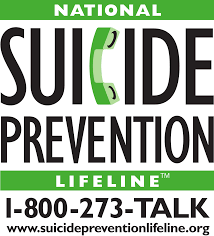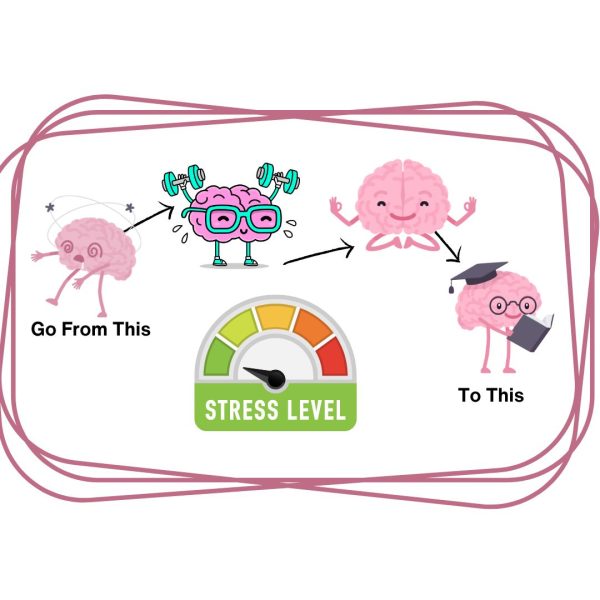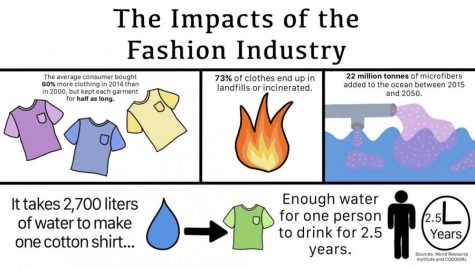Suicide, To Talk or To Not Talk, that IS the question
 Editor’s Note: This article is a collaborative article written by several staff reporters of the Hillsboro Globe. The subject of talking about teen suicide became a hot topic recently because the national media was criticized for “over-talking” about the subject of suicide. The Op-Ed authors of Hillsboro Globe realize the subject is a sensitive one, to the extent, student reporters were afraid that readers would think they are trying to speak for all teenagers. They are speaking up to start a conversation, not to speak for the teenagers as a whole.
Editor’s Note: This article is a collaborative article written by several staff reporters of the Hillsboro Globe. The subject of talking about teen suicide became a hot topic recently because the national media was criticized for “over-talking” about the subject of suicide. The Op-Ed authors of Hillsboro Globe realize the subject is a sensitive one, to the extent, student reporters were afraid that readers would think they are trying to speak for all teenagers. They are speaking up to start a conversation, not to speak for the teenagers as a whole.
As the editor, I wanted to give these students the opportunity to write freely without worry of what their peers or teachers might think. They, in turn, have kept the anonymity of those they interviewed in order to get the most honest answers possible.
As a member of Associated Press, the Hillsboro Globe knows that this approach is not the generally accepted standard of practice. We have given students a number in order to keep our research organized, but in no way possible do the authors think that a number defines a student.
We hope you understand and look forward to your feedback.
How do you feel talking about suicide?
Three recent suicides that are connected to school shootings have received much media attention, and the media was criticized for talking “too much” about suicides because there is a theory talking about it causes teens to think about it and then the result of this thinking will lead to more suicides.
The recent suicides related to the Parkland and Sandy Hook school shootings have led to real conversations among ourselves and we wanted to share, from our point of view, what it is like to talk about suicide.
In a recent article published by the Washington Post, experts on suicide warn that there is a contagion effect if there is too much talking about suicide. “Two teenage survivors of the Parkland, Fla., school shooting of 2018 apparently died by suicide , as did the father of one of the children slain at Sandy Hook Elementary School in Newtown, Conn., in 2012. Mental-health experts advise caution in moments like these.” (Link to Full Article)
Of course, anyone can search online for research about suicide. Recent online research led our staff to conclude that articles about suicide are predominantly written by adults and focus on how adults can prevent teenagers from choosing suicide. We found only a few articles written by identified teenagers.
Rarely are teenagers asked if they want to talk about suicide. It seems teens are more often talked to by experts rather than allowed to talk about suicide. The truth is, we found, most teens need to talk about life and death issues, from their point of view.
Often times the subject is thrust on them, without warning, in a large group setting and instead of being receptive to the genuine concern adults have for teenagers, students will shut down. Teenagers want to have some say in when and where they have sensitive discussions. The reason for this is nearly everyone one we interviewed has been affected or knows someone who has been affected, by a teen death either by suicide, car wreck or shooting and often “talking about someone we know can make us emotional” (Student #3).
IS TALKING ABOUT SUICIDE A GOOD THING?
Asking teens if they want to talk about suicide can be an intimidating adventure for both adults and teens. Talking about suicide is not a bad thing. It’s just that there is a big difference between talking about grieving and talking about keeping someone alive. Prevention is very different from grieving.
Often teachers, counselors and other adults don’t bring up the subject of suicide up until one happens, or almost happens. Maybe talking about suicide does lead to more suicides, however, our informal investigation did not find this to the true.
In fact, our unscientific polls, conversations and interviews, indicate that talking about grief is important to discuss after a tragedy but talking about suicide should be done before it happens. “I don’t think you should talk about suicide when it happens…you should talk about it often to stop it from happening” student #10 stated in a recent interview.
TRENDING UP
Teens are well aware of their trends in matters of style, music and movies as well as the stark data indicating suicide is trending up in numbers. However, they feel fewer and fewer adults have the time, especially at school, to talk honestly about their feelings and to listen to how teens feel.
Students desire more ability to talk in small groups, like those held by Hillsboro IB World School Dean of Students, Amy Cate. She arranges and facilitates student group meeting that are led by community members. Each week, students meet with community professionals to discuss a variety of topics, including suicide.
Over and over students said to us that they could talk freely in a small group setting more easily than in a large group like class even if they trust the adult as much as they do Ms. Cate. Several interviewed said they like it when adults come from the community to help. (Editor note: Students absolutely want community members to come and talk about real issues)
WHAT WORKS
Several of those students in the Nashville community that were interviewed gave us honest feedback about the importance of having a community he or she can call his or her own.
It is apparent, and maybe surprising, how many said that they care about what the community thinks about them (teens) and they worry adults don’t trust them.
The fear of trusting others, especially adults, seems to be one reason why the topic of suicide is not discussed more openly. Student #3 explains why trust is so important, “If people stay silent about their thoughts, then it would be too late when you finally notice what they are going through at the time. Sometimes we don’t know who we can trust when there is a crisis, and that makes us fearful of what adults are going to say and do if we do talk about it.” Talking about it is important, even if students don’t initiate the conversation.
The group meetings held weekly by Ms. Cate offer students a chance to be in a place that isn’t stressful and to talk about important issues. “Ms. Cate encourages us to go directly to the teacher and tell them what is going on instead of keeping it all inside and silent. If we don’t know how to do that, she helps us.
Teens are stressed. They stress out over bullying, their parents, their grades, how successful they will be, if they will be successful, if they are they meeting expectations, and what their friends think about them.
Often it is easier to just try to get through the day instead of talking about it…. until it isn’t. The teenagers’ perception of their community is “adults do a lot of thinking but don’t act much.” Teens want action. They can recognize immediately the adults who try to take action on their behalf.
HOW IMPORTANT IS COMMUNITY TO TEENAGERS, REALLY?
Knowing that there is someone in the community a student could turn to, in addition to teachers and parents, was a repeated theme. Student #4 cited that in-group with Ms. Cate, he finds strength courage to act.
This strength, explained Student 4, “has given me courage to seek out other groups when I graduate.” Another student stated, “Talking about the subject (of suicide) in your community has to happen. It will help everyone if they come together as family and friends. We should have a better way to stay connected when we leave.” Student #11 said that it is an important thing for students to believe and trust the community. “This is the foundation of society – having trust in one another.”
Without exception, teens stated that silence is the worst thing possible, but any discussion has to happen, not when someone dies but when everything seems to be going well.
Also, teens want to talk to other teens about teen death. Adults are “ok, but they talk too much. I think it will help other kids get comfortable if they know their friends will help” (Student #1)
In contrast, there were almost as many teenagers who said that they want adults around, but to only to help (facilitate the process of having) a conversation. “Well if you don’t talk about suicide, then you may never know who’s on the edge of doing it. That’s a life that could be saved. If everyone could come together, it would help solve the communication problems before it’s too late” (Student 9).
WE WANT TO TALK ABOUT THIS?
Perhaps, if we as a community, really, truly, want to make a difference, the subject of suicide should be viewed as a regular topic and okay to talk about, instead of something to hide.
Maybe then, the trend of suicides might go down. “Talking about our thoughts and feelings is hard, but we really want to do it, even if we act like we don’t.”
We, at the Hillsboro Globe, don’t want anyone, but particularly our friends, family and community members to ever feel alone.
Most importantly, we hope that both adults and children could all realize there are other who care and love them unconditionally.
Perhaps, the adults and teens wouldn’t see suicide as an option for escaping their pain, especially after a tragedy.
Simple, real conversations may just make the difference between life and death.
WHAT CAN I DO?
The following behavioral patterns may indicate possible risk for suicide and should be watched closely. If they appear numerous or severe, seek professional help at once. The National Suicide Prevention Lifeline at 1-800-273-TALK (8255) provides acccess to trained telephone counselors, 24 hours a day, 7 days a week.
- Withdrawal from friends and/or social activities
- Experience of a recent severe loss (especially a relationship) or the threat of a significant loss
- Experience or fear of a situation of humiliation of failure
- Drastic changes in behavior
- Loss of interest in hobbies, work, school, etc.
- Preparation for death by making out a will (unexpectedly) and final arrangements
- Giving away prized possessions
- Previous history of suicide attempts, as well as violence and/or hostility
- Unnecessary risks; reckless and/or impulsive behavior
- Loss of interest in personal appearance
- Increased use of alcohol and/or drugs
- General hopelessness
- Recent experience humiliation or failure
- Unwillingness to connect with potential helpers











